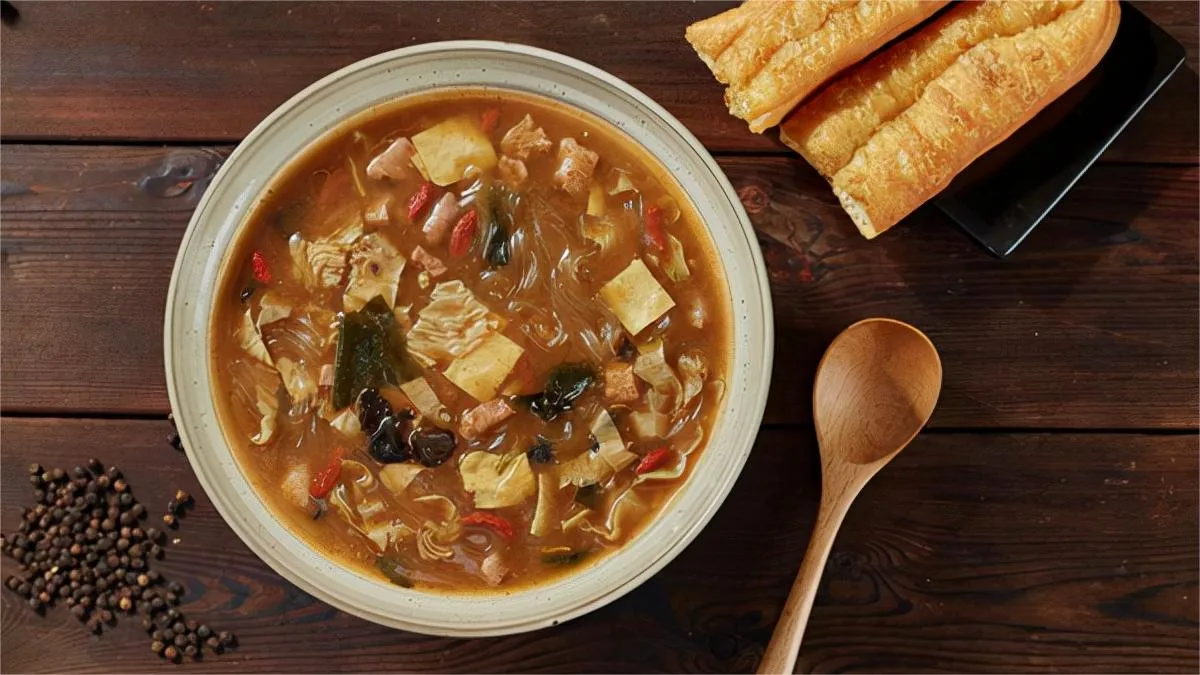Hulatang soup traces its origins back to the Ming Dynasty during the reign of Emperor Jiajing. At that time, the court official Yan Song obtained a longevity-enhancing herbal medicine from a renowned monk to present to the emperor as a gesture of goodwill. This medicinal soup, known as “Imperial Soup,” delighted the emperor with its delicious taste. After the Ming Dynasty, a renowned chef named Zhao Ji fled to Xiaoyao Town in Henan Province (now Xiaoyao Town, Xihua County) and introduced this recipe to the area. The locals, impressed by the spicy and flavorful soup, renamed it “Hulatang” (literally meaning “Spicy Soup”).
The main ingredients of Hulatang soup include wheat flour, cooked beef, and lamb, combined with over 30 natural herbal ingredients such as sand ginger, Sichuan peppercorn, black pepper, cinnamon, Angelica sinensis, and hawthorn. These ingredients are mixed in different proportions to create the unique flavor of Hulatang soup. The preparation process is relatively complex, involving simmering various ingredients and spices before adding wheat flour and cooked beef or lamb. After simmering for a certain period, the result is a pot of aromatic and delicious Hulatang soup.
Hulatang soup is characterized by its rich flavor, vibrant color, thick broth, and spicy taste, making it perfect for pairing with other breakfast items. It offers a diverse range of textures and flavors, combining the savory taste of lamb, the chewiness of wheat gluten, and the spiciness of pepper and chili. Additionally, the herbal ingredients in Hulatang soup provide nutritional and health benefits.
When enjoying Hulatang soup, one can first appreciate its aroma, observe the proportion of ingredients and the color of the broth in the bowl, and then savor its unique taste slowly. It can be paired with steamed buns, fried dough sticks, or steamed buns to enhance the dining experience. However, due to its spicy nature, it is advisable to consume Hulatang soup in moderation to avoid discomfort.
With the development of the times, the production techniques of spicy soup are also constantly innovating and inheriting. The production techniques of Xiaoyao spicy soup in Xihua County have been selected into the national-level representative project list of intangible cultural heritage, becoming a cultural business card of Henan Province. In addition, some spicy soup operators are beginning to take the high-end route, launching various specialty and deluxe spicy soups to meet the needs of different consumers.


